- Vehicle Guide
- Passenger cars
- Estate
- Electric
- 4x4 SUVs
- Suzuki Jimny 4x4
- Dacia Duster 4x4
- Suzuki Vitara 4x4
- Suzuki Vitara auto 4x4
- Dacia Bigster 4x4
- Kia Sportage 4x4 Auto
- Kia Sportage PHEV 4x4 auto
- Mitsubishi Outlander PHEV 4x4 auto
- Toyota Rav4 4x4
- Toyota Rav4 4x4 auto
- Kia Sorento 4x4 auto
- Toyota Landcruiser 150 4x4 auto
- Toyota Landcruiser 250 4x4 auto
- Landrover Discovery 5 4x4 auto
- Landrover Defender 4x4 auto
- Prestige
- Minivans
- 4x4 Camper
- Motorhomes
- Driving in Iceland
- Our services
- Locations & Hours
- Travel Inspiration
- South Iceland: A complete guide
- Reynisfjara Beach in Iceland - Your Guide to a Safe Visit
- Best Times to Visit the Golden Circle in Iceland
- North Iceland: A Complete Guide for Drivers
- East Iceland A Complete Guide for Drivers
- West Iceland The Complete Driver’s Guide
- Your Ultimate Guide to Exploring Iceland’s Ring Road
- Driving the Diamond Circle in Iceland: Your Ultimate Guide
- Driving Iceland's Golden Circle: Your Ultimate Guide
- A 10-Day Itinerary in Iceland: Tips + Ideas
- The Perfect Itinerary for 7 Days in Iceland
- The Best Time to See the Northern Lights in Iceland with a Rental Car
- Renting a Camper in Iceland: The Complete Guide
- Getting to Iceland: A Comprehensive Guide on How to Reach the Land of Fire and Ice
- Nature Bath Locations in Iceland: A Complete Guide
- Iceland with Kids: A 5-Day Self-Drive Itinerary
- Winter Driving in Iceland: A Comprehensive Overview for Foreign Tourists
- The Total Solar Eclipse in Iceland – August 12, 2026
- Exploring Iceland's National Parks on a Self-Drive Adventure
- Exploring Iceland's Wonders: A Comprehensive Guide to Activities and Car Rentals
- Springtime in Iceland – Your Comprehensive Travel Guide
- Exploring Iceland's Most Popular Highland Routes
- The Pearls of Westfjords: The Ultimate Guide
- Exploring Iceland's Hidden Gems | Off-the-Beaten-Path Adventures
- Driving in Iceland in June: Tips for a Safe and Scenic Summer Road Trip
- Driving in Iceland in July: Tips, Routes & Rentals
- Driving in Iceland in August: Late-Summer Freedom on the Open Road
- Guide to Skaftafell Iceland Self-Drive A Journey Through Fire and Ice
- Eco-Friendly Road Trips in Iceland, Sustainable Travel Tips
- Photographer’s Paradise Top Scenic Drives in Iceland for Stunning Shots
- Iceland's Folklore and Legends A Road Trip Through Mythical Sites
- Iceland’s Midnight Sun and How to Make the Most of 24-Hour Daylight
- Exploring Iceland’s Viking Heritage: Top Historical Sites
- Chasing Waterfalls: A Road Trip to Iceland’s Most Spectacular Cascades
- Iceland's Volcanic Wonders: A Self-Drive Tour of Active and Dormant Volcanoes
- Tee Off in the Land of Fire and Ice: A Guide to Golfing in Iceland
- Birdwatching in Iceland: Puffins and Beyond
- Iceland’s Diverse Beaches: Beyond the Black Sands
- Icelandic Horses: The Unique Breed of the North
- Beyond the Ring Road: Iceland’s Hidden Scenic Drives
- Iceland’s Ice Caves: A Year-Round Adventure
- Wildlife Watching in Iceland: Where and When to Go
- Iceland’s Hidden Hot Springs: A Self-Drive Guide to Secret Soaks
- Navigating Iceland’s Weather: What to Expect Each Season
- Tröllaskagi Peninsula: Iceland’s Mountainous Marvel — A Scenic Road Trip with Höldur
- Mastering Iceland's Roundabouts: A Driver’s Guide
- Essential Tips for Renting a Car in Iceland
- Navigating Iceland’s One-Lane Bridges: Your Guide to Safe and Scenic Crossings
- Exploring Iceland’s Film Locations by Rental Car
- 5 Must-Visit Destinations Within Two Hours of Keflavík Airport
- Seasonal Car Rental Tips for Iceland’s Summer Festivals
- Understanding Iceland's F-Roads: How to Drive Safely Into the Highlands
- What Makes Iceland Unique: Top 15 Highlights for an Unforgettable Journey
- Driving and Hiking in Harmony: Explore Iceland's Natural Wonders with Höldur Car Rental
- Best Car to Rent in Iceland?
- Avoiding Common Car Rental Mistakes in Iceland
- Making Your Car Rental in Iceland Child-Friendly: Tips for Stress-Free Family Travel
- Exploring Akureyri, Iceland’s Northern Gem, with EasyJet and Europcar
- Renting a Manual or Automatic Car in Iceland
- Discover the Arctic Coast Way in Iceland with Höldur Car Rental
- How to Save on Fuel Costs During Your Iceland Road Trip
- Electric vs. 4x4 Rentals in Iceland: Which is Right for Your Trip?
- Top Scenic Detours Off Iceland's Ring Road
- Top Safety Tips for First-Time Drivers on Iceland’s Roads
- Cultural Pit Stops Along Iceland’s Ring Road
- Your Guide to Exploring Stuðlagil Canyon by Car: Iceland’s Basalt Beauty Awaits
- Day Trip Ideas From Reykjavik by Rental Car
- Visit Glymur Waterfall: The Ultimate Self-Drive Adventure from Reykjavík
- Discover the Volcanic Wonders of Lake Mývatn by Car
- Discovering the Magic of Snæfellsnes Peninsula by Car
- Your Self‑Drive Guide to Gullfoss Waterfall
- A Guide to Seljalandsfoss Waterfall in Iceland: Explore by Car
- Exploring Reykjanes Peninsula A Self Drive Guide
- Exploring Iceland Landmannalaugar by 4x4
- A Beginner's Guide to River Crossings in Iceland
- Best Car Rental Offers for Iceland’s Summer Adventures
- Your Self‑Drive Guide to Þingvellir National Park
- Your Ultimate Guide to Geysir, Iceland: All You Need to Know
- How to Pay for the Vaðlaheiðargöng Tunnel
- Your Guide to Visiting Jökulsárlón Glacier Lagoon
- The Diamond Beach in Iceland: A Sparkling Wonder Worth Visiting
- Parking fines in Iceland: how to pay and what to do if you receive one
- Where to find overnight parking in Reykjavík: a local’s guide for travellers
- How to park for free in Reykjavík: tips to save on your Iceland trip
- How to pay for parking in Reykjavík - A friendly guide for drivers in Iceland
- Game of Thrones Filming Locations in Iceland: A Self-Drive Guide
- How to Choose the Right Car Rental at Keflavík Airport
- Flying Within Iceland: Your Guide to Domestic Routes and Regional Airports
- Top 3 Must-See Attractions on Iceland's Golden Circle
- Hidden Gems Along the Golden Circle Route
- Your Essential Guide to Iceland: Currency, Culture, and Car Rental Tips
- How to Plan the Perfect Golden Circle Self-Drive Tour
- The Comprehensive Guide to Rental Car Sizes at Keflavik Airport
- Húsafell & Hallmundarhraun: Hidden Lava Field Adventures by Car
- Iceland Weather by Month: What to Expect and How to Drive Safely with Holdur Car Rental
- A Guide to Iceland’s Quirky Roadside Attractions
- Exploring Iceland’s Lava Tubes | Self-Drive Cave Adventures with Höldur Car Rental
- Coolcation in Iceland: Self-Drive Your Summer Escape to the North
- Driving Iceland’s Coastal Roads: A Guide to Lesser-Known Peninsulas
- Top Tips for Driving in Iceland Safely Year-Round
- The Best Rest Stops and Viewpoints Along Iceland's Ring Road
- Driving in Iceland in September: Embrace the Autumn Adventure
- Your Guide to Exploring Fjaðrárgljúfur – South Iceland’s Fairytale Canyon
- Explore Reykholt on a Self-Drive Tour in Iceland
- How to Choose the Right Insurance for Your Iceland Car Rental
- Hiking Múlagljúfur Canyon: Iceland’s Hidden Gem You Can’t Miss
- Understanding Iceland's Weather and How It Affects Driving Conditions
- Dyrhólaey: A Complete Self-Drive Guide to Iceland's Breathtaking South Coast
- Where to See Iceland’s Tectonic Plates Up Close
- Scenic Journey on Kjalvegur Road 35 Reykjavik to Akureyri
- Guide to Visiting Svartifoss with a Rental Car
- Kerið Crater Lake in Iceland: A Self-Drive Guide
- Your Complete Guide to Stokksnes, Iceland with a Rental Car
- Hengifoss Waterfall in Iceland: The Ultimate Self-Drive Guide
- Your Complete Guide to Visiting Skógafoss Waterfall with a Rental Car
- Into the Heart of Þórsmörk: Iceland’s Valley of Thunder
- Dynjandi Waterfall in Iceland: The Ultimate Self-Drive Guide
- Visiting Ásbyrgi Canyon in North Iceland by Car: A Complete Self-Drive Guide
- Driving in Iceland in October: Embrace the Autumn Transition
- Hraunfossar: Iceland’s Hidden Gem for Self-Drive Travellers
- Barnafoss Waterfall: Iceland’s Raging Cascade with a Legend
- Driving in Iceland in November: Your Complete Guide to a Spectacular Autumn Adventure
- Fishing in Iceland: All You Need to Know
- Öxarárfoss Waterfall in Iceland: A Self-Drive Guide with Höldur
- Life in Iceland: Essential Guide to Living in the Land of Fire and Ice
- People of Iceland - 12 Fun Facts About Icelanders
- Glaumbær Turf Houses: A Self-Drive Guide to Iceland’s Living History
- Húsavík: Whale Watching Capital of Iceland
- Svínafellsjökull Glacier: A Self-Drive Guide to Iceland’s Ice Giants
- Kirkjubæjarklaustur: A Historic South Coast Gem
- Vík í Mýrdal: South Iceland’s Coastal Treasure
- Namaskard: A Self-Drive Guide to Iceland’s Geothermal Wonderland
- Laufás Heritage Site: Where Iceland’s Past Lives On
- Navigating Iceland's Gravel Roads: Tips for a Safe and Smooth Drive
- Iceland's Best Stargazing Spots for Self-Drive Travellers
- Iceland's Best Picnic Spots: Scenic Stops for Self-Drive Adventures
- Top 5 Family-Friendly Hiking Trails Accessible by Rental Car
- 15 Tips for Travelling to Iceland
- How to Plan a Winter Photography Road Trip in Iceland
- Visiting Gljúfrabúi Waterfall — A Self-Drive Guide
- How to Spot Puffins in Iceland: A Self-Drive Adventure
- Your Essential Guide to Winter Tyres and Safe Driving in Iceland
- Iceland’s Most Active Volcanoes: A Self-Drive Guide
- Iceland’s Most Scenic Bridges and River Crossings: A Self-Drive Guide
- Iceland’s Most Instagrammable Spots for Self-Drive Travellers
- How Cold Is It in Iceland During Winter? A Self-Drive Guide
- Explore Dimmuborgir: A Self-Drive Guide to Iceland's Dark Castles
- The Ultimate Guide to Iceland’s Top 5 Waterfalls by Car
- Iceland’s Best Scenic Routes for Autumn Foliage: A Self-Drive Guide
- The Best Time to Visit Iceland for Self-Drive Travellers
- Self-Drive Adventures to Iceland’s Remote Lighthouses
- Selfoss Waterfall Self-Drive Guide: Explore Iceland Your Way
- All About the Icelandic Sheep
- Vestrahorn: A Self-Drive Guide to Iceland’s Stokksnes Peninsula
- Höfn, Iceland: The Lobster Town Self-Drive Guide
- Exploring Arnarstapi: A Self-Drive Guide
- A Guide to Iceland's Seasonal Foods for Your Road Trip
- Hverfjall Crater, Iceland: A Self-Drive Guide
- Self-Drive Guide to Visiting Askja
- A Self-Drive Guide to Visiting Kerlingarfjöll
- A Self-Drive Guide to Gunnuhver Geothermal Area
- Skriduklaustur, Iceland: A Self-Drive Guide to History & Culture
- Your Ultimate Guide to Visiting the Blue Lagoon in Iceland
- Borgarnes, Iceland: Top Things to Do & Self-Drive Guide
- A Guide to Glaciers in Iceland
- Car Rental Insurance in Iceland: What’s Usually Included, What’s Not & How to Choose
- Best Car Models for Iceland’s Terrain: Recommendations by Route
- Solo Traveller’s Guide to Self-Driving in Iceland
- Exploring Iceland’s Arctic Circle: What to See and Do
- How to Plan a Budget-Friendly Road Trip in Iceland
- The History of Iceland’s National Day: A Self-Drive Celebration
- Where to Spot Whales in Iceland: A Self-Drive Guide
- The Diamond Circle vs. The Golden Circle: Which Route is Right for You?
- Embracing a Greener Journey: Sustainability in Iceland
- Granni: A Self-Drive Guide to Iceland’s Neighboring Waterfall
- Háifoss: A Self-Drive Guide to Iceland’s Tallest Waterfall
- Iceland's Best Camping Spots for Road Trippers
- Gjáin: A Self-Drive Guide to Iceland’s Hidden Oasis
- Iceland's Hidden Waterfalls: Beyond the Tourist Trails
- Hjálparfoss: A Self-Drive Guide to Iceland’s Helping Falls
- Seasonal Self-Drive Itineraries in Iceland: What’s Open When?
- Kirkjufell: A Self-Drive Guide to Iceland’s Most Photographed Mountain
- Fjallabak Nature Reserve: A Self-Drive Guide to Iceland’s Rugged Highlands
- Hrafntinnusker: A Self-Drive and Hiking Guide to Iceland’s Obsidian Wilderness
- When to Visit Iceland: Northern Lights and Ice Caves vs. Hiking and Highland Adventures
- Visiting Laugarvatn Fontana Spa with a Rental Car: A Relaxing Icelandic Getaway
- Hvítserkur Rock: A Self-Drive Guide to Iceland’s Dragon of the North
- Skiing in Iceland: A Self-Drive Guide for Winter Adventurers
- Visiting the Mývatn Nature Baths by Car: A Self-Drive Guide
- Visiting Vök Baths in East Iceland: A Self-Drive Guide
- Visiting Skútustaðir Pseudo-Craters: A Self-Drive Guide
- Visiting Hljóðaklettar: A Self-Drive Guide on the Diamond Circle
- The Ultimate Guide to Exploring Reykjavik with a Rental Car
- Visiting Seljavallalaug: A Hidden Gem in South Iceland
- Guide to Sólheimajökull Glacier by Iceland Car Rental
- Eyjafjallajökull: Iceland’s Glacier Volcano
- Ísafjörður, Iceland: Your Ultimate Self-Drive Guide to the Westfjords
- What Continent is Iceland In? A Traveler's Guide
- Katla Volcano: A Guide to Iceland's Sleeping Giant
- The Magic of Icelandic Water: A Traveler's Guide
- A Guide to Exploring Akureyri by Rental Car
- A Self-Drive Guide to the Krafla Volcanic Region
- 12-Day Iceland Self-Drive: The Complete Itinerary
- Hekla Volcano: A Self-Drive Guide to Iceland's Gateway
- Visiting Deildartunguhver: A Self-Drive Guide to Europe’s Most Powerful Hot Spring
- Exploring Borgarfjörður: A Self-Drive Guide to West Iceland
- Exploring Stórurð: A Self-Drive and Hiking Guide to East Iceland
- Visiting the Forest Lagoon in North Iceland: A Self-Drive Guide
- Driving in Iceland in December: Embrace the Winter Wonderland
- Exploring Grábrók: A Self-Drive Guide to Iceland’s Volcanic Crater
- Exploring Látrabjarg: A Self-Drive Guide to Iceland’s Westernmost Point
- Iceland Car Hire Tips for UK Drivers: What You Need to Know
- 4-Day Iceland Winter Itinerary: The Best of the South
- Mount Mælifell: Iceland’s Emerald Volcano
- How Long to Drive Around Iceland? A Self-Drive Guide
- Driving in Iceland in January
- Exploring Djúpavík: A Self-Drive Guide to Iceland’s Remote Westfjords
- What to Wear in Iceland: Tips for Every Season
- Things to Do in Stykkishólmur: A Self-Drive Adventure Through Iceland’s Magical West
- The Secret Lagoon: Iceland’s Hidden Gem of Relaxation and Discovery
- The Silver Circle of Borgarfjörður: Your Ultimate Self-Drive Guide
- Snæfellsjökull: A Journey to Iceland’s Glacier of Legends
- Car Rental Iceland 4x4: Best 4WD Options for Your Trip
- What to See in Iceland: 20 Places You Don’t Want to Miss
- How to Prepare for an Iceland Road Trip
- Your Guide to Visiting Fagrifoss Waterfall by Car
- Exploring Stakkholtsgjá Canyon: A Self-Drive Adventure in Iceland
- Kolugljúfur Canyon: A Guide to Iceland's Hidden Gem
- Exploring Kvernufoss: A Hidden Gem in South Iceland
- Skógar Museum: A Journey Through Iceland's History
- 2 Days in Iceland: The Perfect Itinerary
- Exploring Berserkjahraun: A Self-Drive Guide to Iceland’s Lava Fields
- Driving in Iceland in February: Your Complete Guide
- Iceland Daylight Hours by Month: Planning Your Trip
- Petra’s Stone Collection: A Self-Drive Gem in East Iceland
- Iceland's New Kilometer-Based Road Tax: Everything You Need to Know
- Krýsuvíkurbjarg Cliffs: Self-Drive Guide to Iceland’s Wild Coast
- Brimketill: The Reykjanes Peninsula’s Natural Lava Pool
- Exploring Eldhraun Lava Field: A Self-Drive Guide to Iceland’s Volcanic Marvel
- Iceland 2026 Car Rental Guide
- Choosing the Best 4x4 for Iceland's Westfjords
- How Sagas and History Shape Iceland's Driving Routes
- Driving in Iceland After Dark: How to Plan Safe Evening & Night Drives
- What to Do When Roads Close in Iceland: A Traveller’s Plan B Guide
- Iceland With a 2WD Only: No‑Gravel, No F‑Road Itineraries (2, 5 & 7 Days, All Seasons)
- Iceland Through the Windshield: Landscapes You’ll See Without Leaving the Car
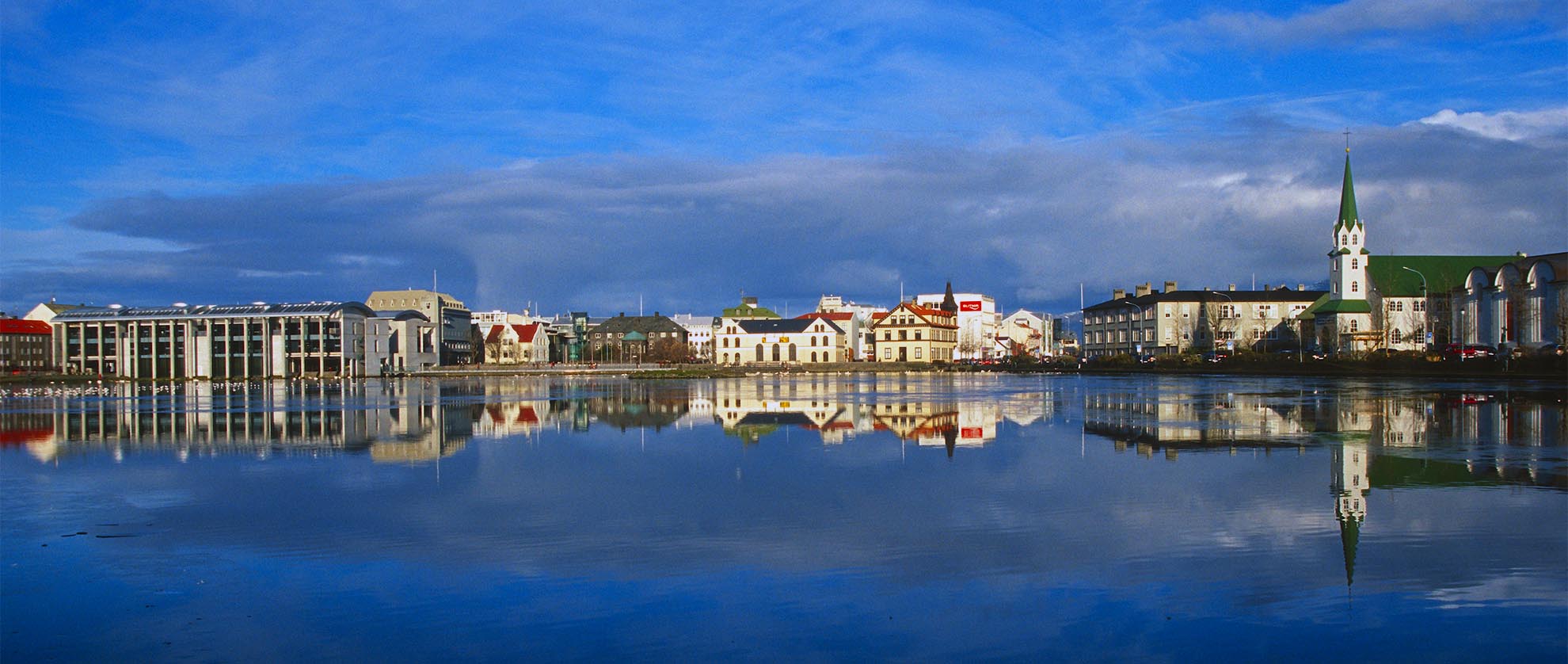
Cultural Insights
People of Iceland - 12 Fun Facts About Icelanders
02.09.2025
Iceland's dramatic landscapes and unique culture have captivated travellers for decades, but the true magic of this Nordic island lies in its people. Whether you're planning a self-drive adventure through the Ring Road or simply curious about Icelandic culture, understanding the locals will enrich your experience immeasurably. From their literary prowess to their quirky traditions, Icelanders possess characteristics that are as fascinating as the land they inhabit.
If you're considering a car rental in Reykjavik or planning to collect your vehicle at Keflavik International Airport, you'll soon discover that interacting with locals forms an integral part of any Icelandic journey. Here are twelve remarkable facts about Icelanders that will help you appreciate the cultural depth of this extraordinary nation.
See also: Life in Iceland: Essential Guide to Living in the Land of Fire and Ice.
1. Iceland Has More Writers Per Capita Than Anywhere Else
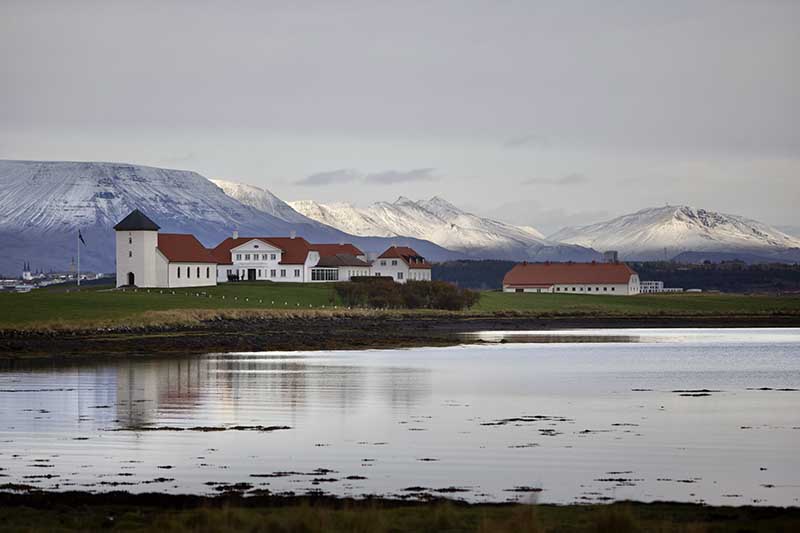
Icelanders are voracious readers and prolific writers. With a population of just 370,000, Iceland publishes more books per capita than any other country in the world. One in ten Icelanders will publish a book during their lifetime, making literature an intrinsic part of the national identity.
This literary tradition stems from the medieval sagas, epic tales that chronicled the lives of early settlers. Today, crime fiction dominates the contemporary scene, with authors like Arnaldur Indriðason gaining international recognition. When you rent a car at Keflavik International Airport and explore Iceland's towns, you'll notice bookshops are as common as coffee shops.
2. They Don't Use Surnames in the Traditional Sense
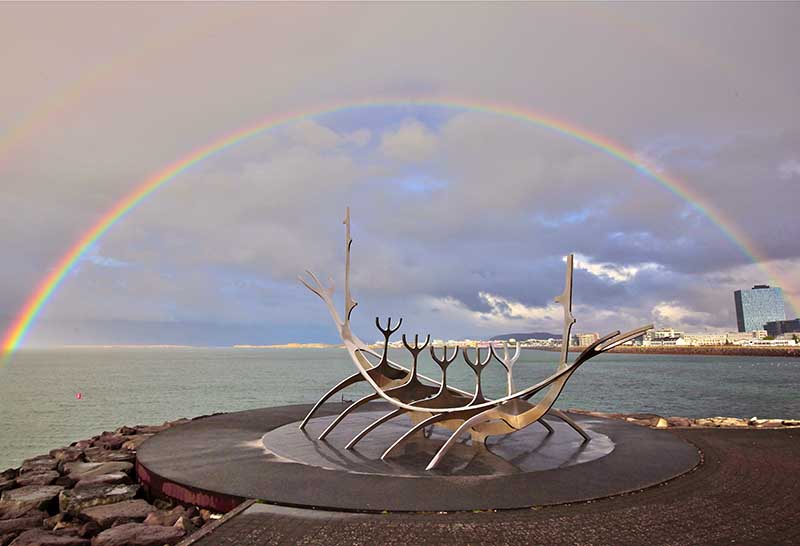
Icelanders follow a patronymic naming system, meaning children take their father's (or sometimes mother's) first name and add "son" or "daughter" to it. For example, if Björn has a son named Magnus, the child would be Magnus Björnsson. A daughter named Anna would be Anna Björnsdóttir.
This system means the Icelandic phone directory was organised alphabetically by first names, not surnames. It also creates a uniquely egalitarian society where everyone, including the Prime Minister, is addressed by their first name.
3. Most Icelanders Believe in Elves and Hidden People
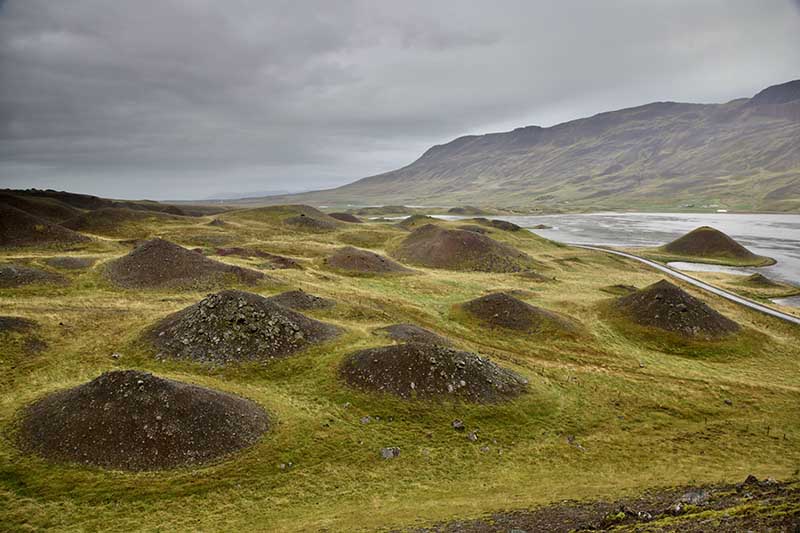
Surveys consistently show that over half of Icelanders believe in the existence of elves, trolls, and hidden people (huldufólk). This isn't mere superstition but a cultural cornerstone that influences modern life. Construction projects sometimes reroute around elf habitats, and many Icelanders can share stories about supernatural encounters.
When planning self-drive tours in Iceland, you'll notice certain rock formations and lava fields are treated with particular reverence. This connection to folklore reflects a deeper relationship with the natural world that has sustained Icelandic culture for centuries.
4. They're Incredibly Peaceful People
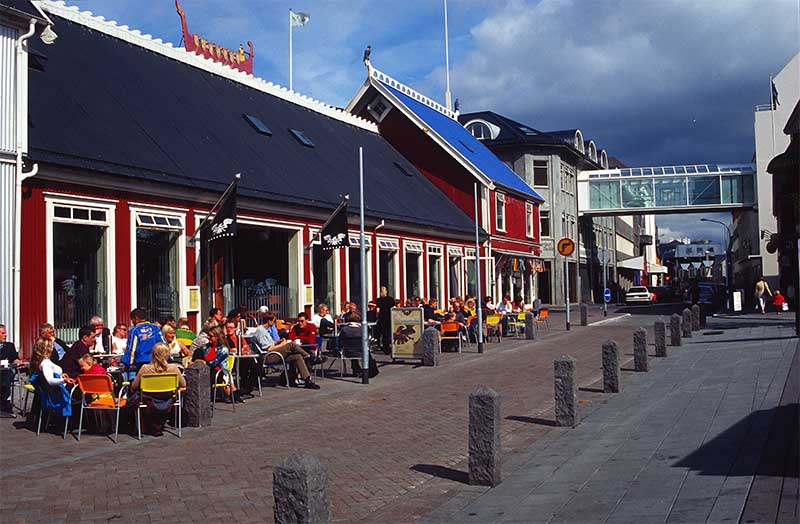
Iceland consistently ranks among the world's most peaceful nations. The country has no military and crime rates are extraordinarily low. Babies sleep outside in prams whilst parents shop or dine, and houses often remain unlocked.
This peaceful nature extends to their approach to justice and social issues. Iceland was the first country to elect a female president (Vigdís Finnbogadóttir in 1980) and has consistently led progressive social movements. For visitors using car rental services in Iceland, this translates to safe, stress-free travel throughout the country.
5. Swimming Culture Is Central to Social Life
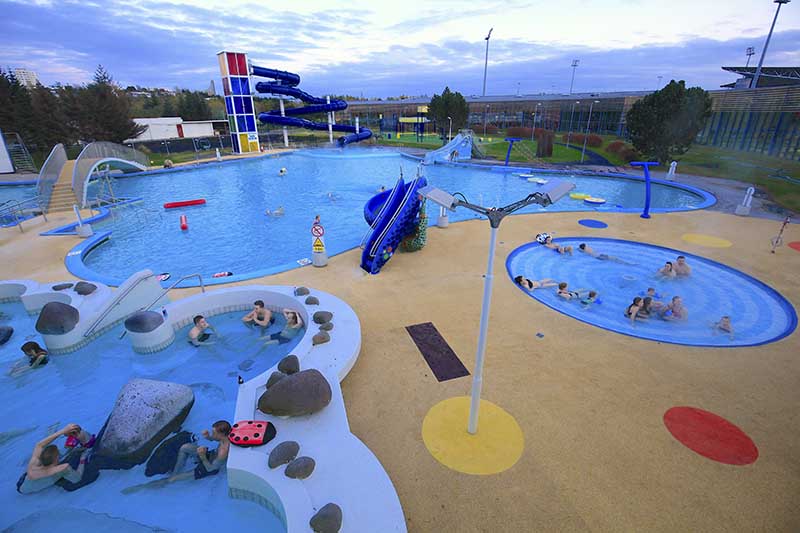
Icelanders are passionate about swimming, particularly in geothermal pools. With over 120 public pools across the country, swimming culture serves as the cornerstone of social interaction. These pools, heated by natural geothermal energy, remain open year-round, even during harsh winters.
The pools function as community centres where locals gather to socialise, discuss current events, and relax. Pool etiquette is taken seriously – thorough showering before entering is mandatory, and breaking this rule is considered deeply offensive.
6. They Have a Unique Relationship with Nature
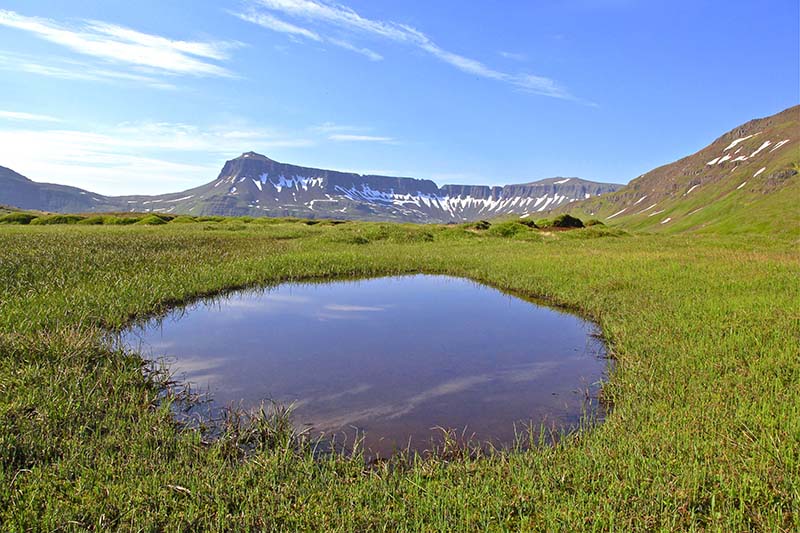
Living on a geologically active island has shaped Icelanders' relationship with nature. They possess an intuitive understanding of weather patterns, volcanic activity, and natural phenomena that outsiders find remarkable.
This connection influences their daily decisions, from choosing routes for self-drive tours to planning outdoor activities. Icelanders respect nature's power whilst embracing its beauty, a balance that visitors can appreciate when exploring the country by car from locations like Reykjavik or Keflavik International Airport.
7. Everyone Is Related to Everyone Else
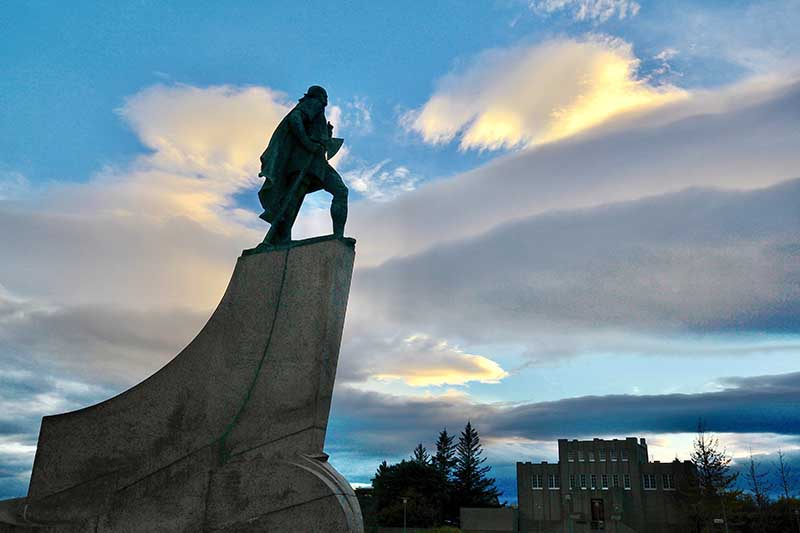
Iceland's small population and isolated location mean most Icelanders are related within a few generations. To prevent accidental romantic relationships between relatives, Icelanders developed a genealogy app that alerts users if they're related to potential partners.
This interconnectedness creates a uniquely cohesive society where social responsibility is paramount. Scandals spread quickly, but so does support during difficult times. For visitors, this means encountering consistently helpful, community-minded locals throughout their travels.
8. They're Champion Chess Players
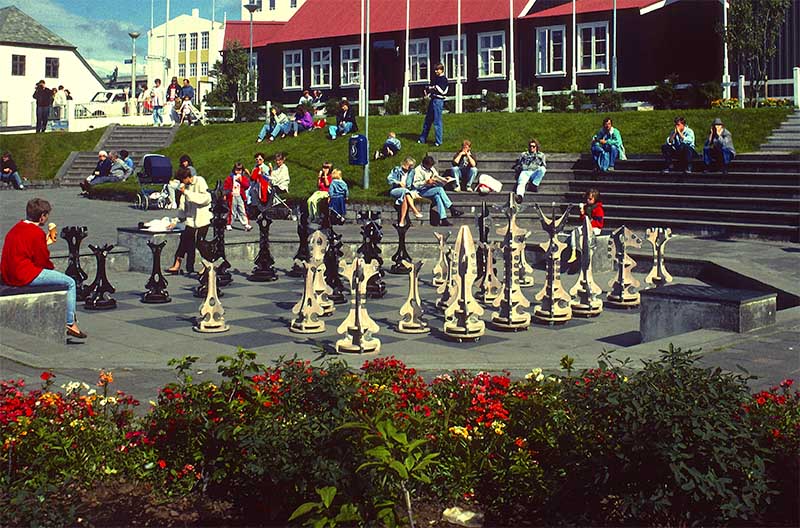
Iceland has produced more chess grandmasters per capita than any other nation. The game gained popularity during the 1972 World Chess Championship between Bobby Fischer and Boris Spassky, held in Reykjavik. This event captured the national imagination and established chess as a serious pursuit.
Chess clubs operate throughout Iceland, and the game is taught in schools as part of the curriculum. Many cafes and community centres feature chess boards, reflecting the intellectual culture that permeates Icelandic society.
9. They Take Name Approval Very Seriously
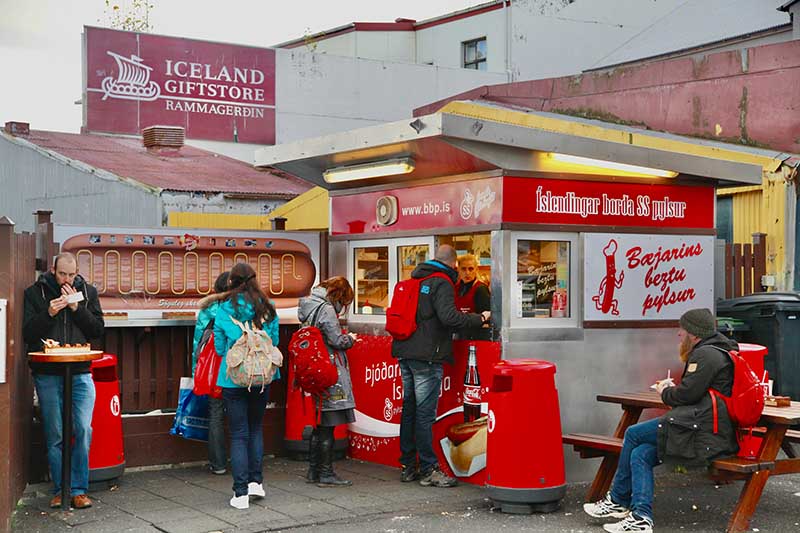
Iceland maintains an official list of approved names, and parents must seek government approval for names not on the list. The Icelandic Naming Committee ensures names can be conjugated according to Icelandic grammar rules and don't cause embarrassment to the bearer.
This system protects the Icelandic language whilst maintaining cultural continuity. Names must reflect Icelandic traditions and phonetic patterns, creating a unique linguistic identity that has persevered despite globalisation pressures.
10. They Have a Thriving Music Scene

Despite its small population, Iceland has produced internationally acclaimed musicians across diverse genres. From Björk's experimental soundscapes to Sigur Rós's atmospheric rock, Icelandic artists consistently punch above their weight in the global music scene.
This musical creativity stems from cultural emphasis on artistic expression and state support for the arts. Music education is prioritised in schools, and venues throughout Reykjavik showcase emerging talent alongside established acts.
11. They're Environmental Pioneers
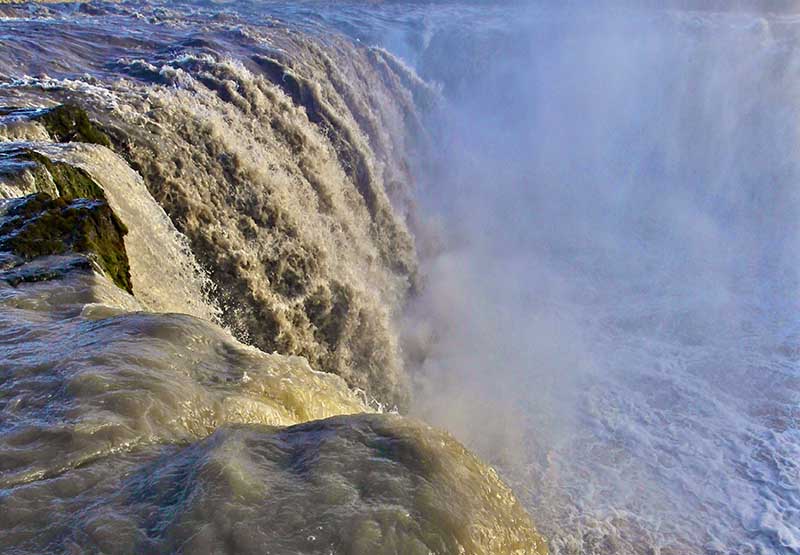
Iceland generates nearly 100% of its electricity from renewable sources, primarily geothermal and hydroelectric power. This environmental leadership influences individual behaviour, with most Icelanders demonstrating strong environmental consciousness in their daily lives.
The country's commitment to sustainability makes it an ideal destination for eco-conscious travellers. When you rent a car in Iceland, you'll discover that even transportation infrastructure incorporates environmental considerations, from efficient route planning to minimal landscape disruption.
12. They Maintain Strong Viking Heritage
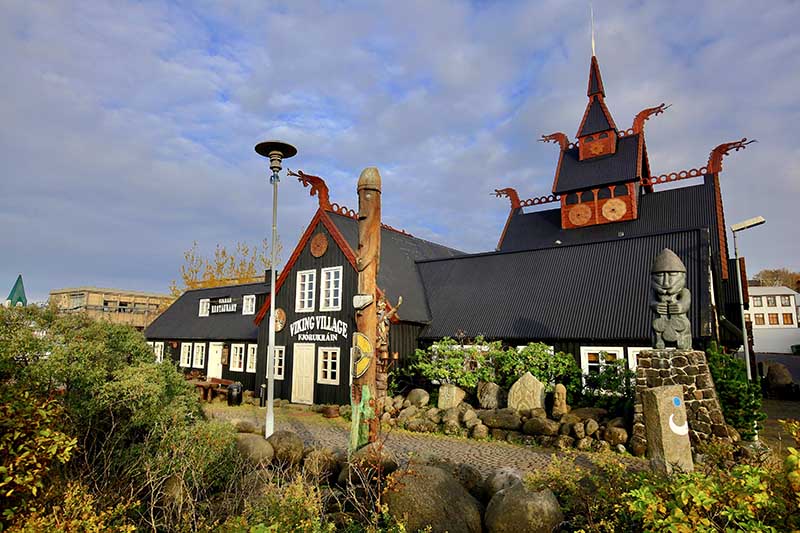
Despite centuries of change, Icelanders maintain tangible connections to their Viking heritage. The Althing, established in 930 CE, is the world's oldest parliament and continues to influence modern governance structures.
Traditional crafts, storytelling traditions, and cultural practices reflect this heritage whilst adapting to contemporary life. For visitors exploring Iceland through self-drive tours, numerous museums and cultural sites provide insight into this remarkable historical continuity.
Planning Your Cultural Discovery

Understanding these cultural nuances enhances any Icelandic adventure. Whether you're collecting your car rental from Keflavik International Airport or exploring Reykjavik's cultural districts, appreciating local customs creates more meaningful interactions with this remarkable population.
The combination of ancient traditions and modern innovation makes Iceland a fascinating destination for cultural exploration. Through respectful engagement with local customs and genuine curiosity about Icelandic life, visitors can gain profound insights into one of the world's most unique societies.
Frequently Asked Questions
What language is spoken in iceland?
Icelanders speak Icelandic, a North Germanic language closely related to Old Norse. Most Icelanders speak excellent English, particularly in tourist areas, making communication easy for visitors. However, learning basic Icelandic phrases demonstrates respect and often elicits warm responses from locals.
Is it appropriate to tip in Iceland?
Tipping is not customary in Iceland, as service charges are typically included in prices. However, small tips for exceptional service are appreciated but never expected. This reflects the egalitarian nature of Icelandic society.
How do Icelanders view tourists and self-drive visitors?
Icelanders generally welcome tourists warmly, provided visitors show respect for local customs and the environment. They appreciate when visitors take time to understand local culture rather than simply photographing landscapes. Responsible self-drive tourism is encouraged and supported.
What should visitors know about Icelandic social customs?
Icelanders value punctuality, honesty, and direct communication. They're generally reserved but friendly once engaged in conversation. Removing shoes when entering homes is customary, and discussing politics or personal topics is perfectly acceptable among acquaintances.
Are there any cultural taboos visitors should avoid?
Avoid comparing Iceland to other countries unfavourably, discussing whaling in judgmental terms without understanding local perspectives, or treating natural sites carelessly. Icelanders take environmental protection seriously and expect visitors to demonstrate similar respect.
How does Icelandic work culture affect visitor interactions?
Icelanders maintain excellent work-life balance and value efficiency over extended hours. Many businesses close early or have limited weekend hours, particularly outside Reykjavik. Planning ahead ensures access to services and demonstrates respect for local schedules.





